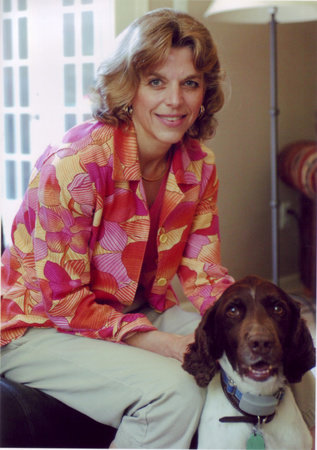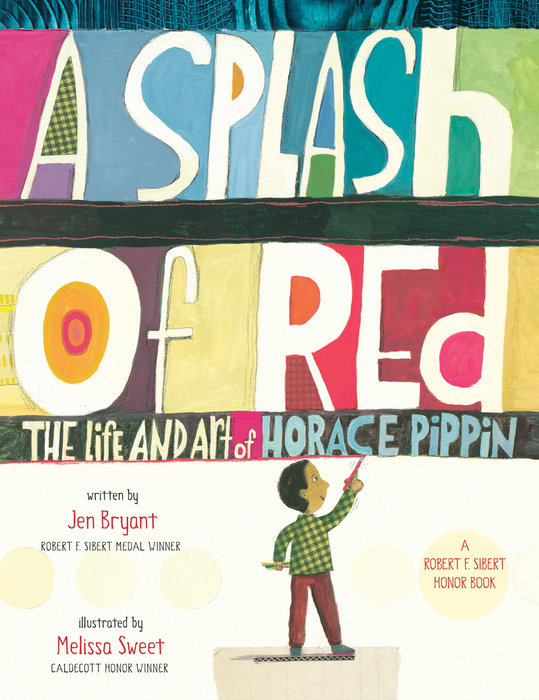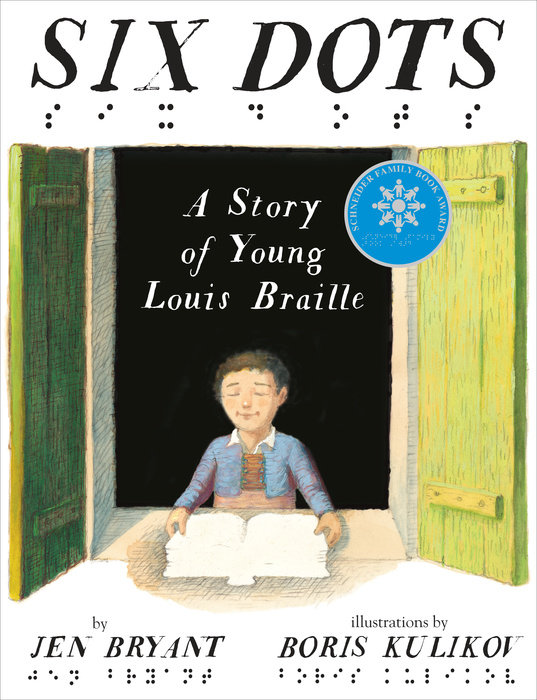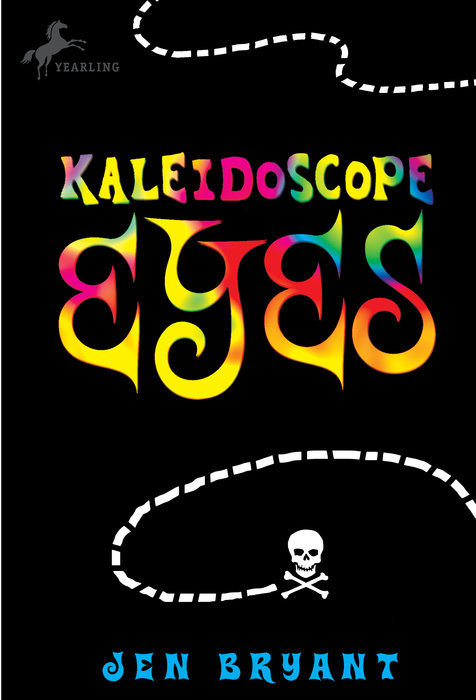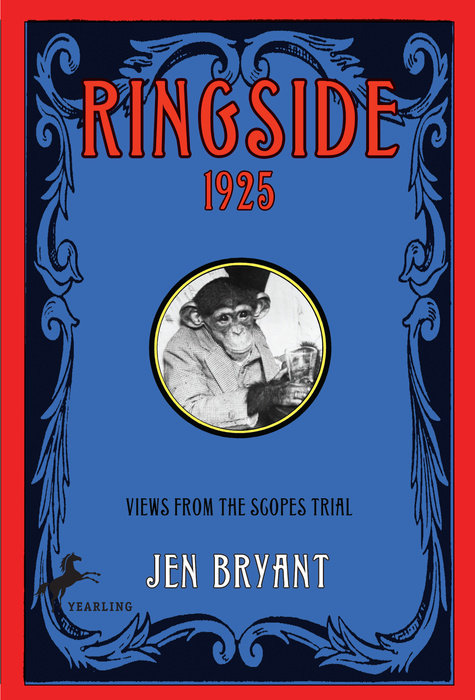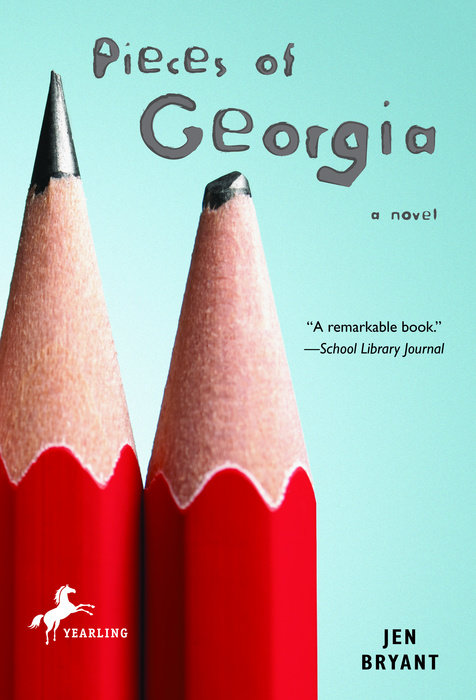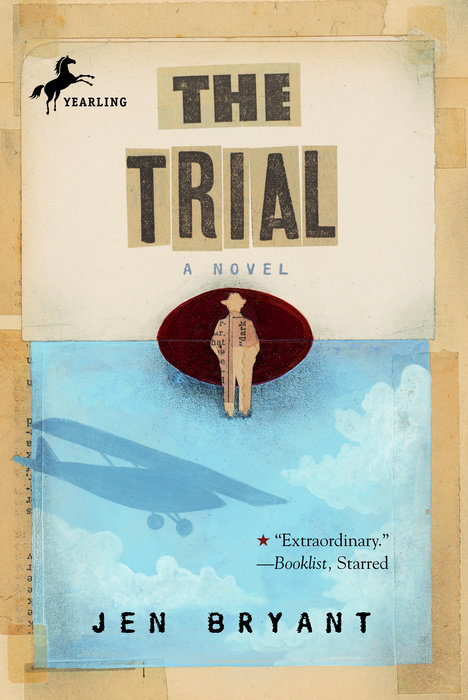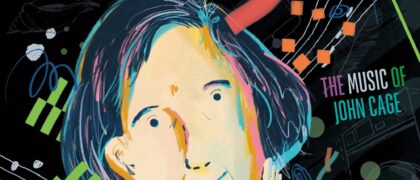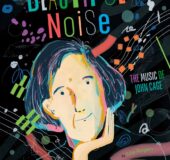1. You’ve written on a wide variety of topics. Where do you get your ideas?
Honestly, ideas are everywhere: in books I read, in people I talk to, in my own household and neighborhood. The challenge is to capture them and mold them into a story that will both entertain and inform my readers. I don’t have a standard method of choosing which ideas I will turn into books . . . it’s more like the ideas choose me! For example, my first novel, The Trial, began as I was writing a series of poems (which I intended to send to magazines) about the Lindbergh baby kidnapping and murder case. Before I knew it, I had put everything else aside and was really delving into the facts and myths about the investigation and the trial. A brief visit back to my hometown of Flemington, New Jersey, where the 1935 trial took place, convinced me that I should try and tell the whole story in a verse novel.
2. You wrote more than a dozen biographies before turning to fiction. How did that experience affect your later writings?
I’ve always been fascinated with real events and real people–and I find them frequently more interesting and more bizarre than anything I could ever make up. I also love to research–and by that I mean I love to hunt for interesting and little-known facts. The research process is never boring! I travel to museums, archives, and small towns where significant events took place (such as the Scopes Monkey trial in Dayton, Tennessee); I go to plays and watch movies; I interview famous people and witnesses to history; I read historical documents, books, magazines, and web pages.
3. Your third novel, Pieces of Georgia, is a 13-year old girl’s journal about her dead mother, her still-grieving father, her athletic best friend, and her own desire to become an artist. How did you create this character–and why did you have her live on a horse farm?
Many aspect of my own life came crashing together in that book. When I was a teenager, I spent many Saturdays on a horse farm in central New Jersey, and I used those memories to create the setting for Pieces of Georgia. I also grew up next to a funeral home (my father and grandfather were undertakers), so I had a lot of opportunity to observe how grief and loss affect different people. I participated in three sports in high school, but still had a lot of free time to explore other interests. Now, however, sports have become year-round and hyper-competitive and so I created Georgia’s friend Tiffany to represent the difficulties that teens today must deal with if they’re into sports. Lastly, I didn’t go to school for writing, so I had to engage in a lot of trial-and-error to find my own style and voice. In Pieces of Georgia, that’s exactly how Georgia goes about learning how to draw.
4. Tell us about your recent novel Kaleidoscope Eyes.
The main plot involves three friends who stumble onto a set of maps they suspect may lead them to one of the buried treasures of the notorious pirate Captain Kidd. (I started this book long before the recent events involving modern pirates starting appearing in the news!) The story takes place in 1968, in a small town in southern New Jersey. The entire ‘60s decade was turbulent, but that year was especially so: we had the assassinations of Bobby Kennedy and Dr. Martin Luther King, Jr., the peak of the Vietnam War, and hundreds of antiwar protests and sit-ins. There were huge rock concerts and drug use was rampant. Civil rights and women’s rights were gaining momentum, but there remained many parts of society who were violently opposed to both. So–in a way, it’s a 17th-century pirate tale embedded in a 1960’s rock ’n’ roll era story. It was a lot of fun to research, and hopefully even more fun to read!
OTHER FAQs:
Where were you born?
Easton, Pennsylvania . . . but I only lived there for a few weeks. I spent most of my growing up years in Flemington, New Jersey.
Where did you go to college? What did you study?
I went to Gettysburg College in Gettysburg, Pennsylvania. I majored in French and minored in German and Secondary Education. Jerry Spinelli–who is a good friend and one of my favorite authors–went there, too.
Where do you live now and who’s in your family?
I live in northern Chester County, Pennsylvania, with my husband, Neil; my daughter, Leigh; and our energetic springer spaniel, Sam.
What other jobs have you had besides being a writer?
I’ve been a waitress, a bank teller, a cross-country coach, a high school teacher, a college professor, member of a road crew, retail clerk, picture framer, and probably a few others I’m forgetting!
What do you enjoy doing when you’re not writing?
I visit our local YMCA almost daily to bike, lift weights, do aerobics or swim–and also to see people! (Writing is very still and very solitary.) At home, I enjoy wandering around our yard to fill the bird feeders, play with our dog, and occasionally do a little gardening. I also love to read good poetry, fiction, and biographies and to watch movies with my family. When I travel, I enjoy visiting museums–especially the smaller and more unusual ones. The Museum of Women in the Arts in Washington, D.C., and the American Visionary Art Museum in Baltimore are two of my favorites. I am also a HUUUUGE Philadelphia Phillies fan and watch their games whenever I can!





